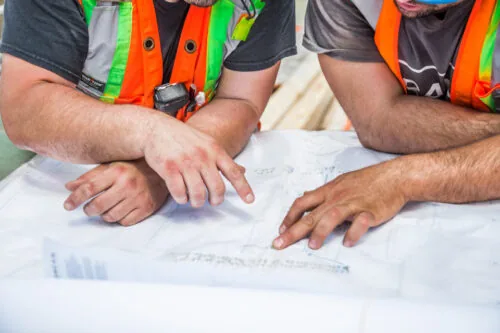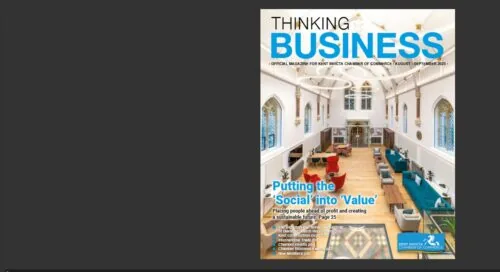 https://www.eclipsehr.uk/wp-content/uploads/2025/10/pexels-frans-van-heerden-201846-632470-1-500x333.jpg
https://www.eclipsehr.uk/wp-content/uploads/2025/10/pexels-frans-van-heerden-201846-632470-1-500x333.jpg
Expert MAT HR Support
Read more
by Rebecca Lister |
Article Summary
Creating inclusive workplaces in construction isn’t just about compliance – it’s a strategic advantage. The Construction Leadership Council and other industry bodies now actively promote fairness, inclusion and respect across all construction sectors. From boosting recruitment and retention to improving innovation, the benefits of diversity are clear.
This article outlines the importance of diversity and inclusion in the construction industry and provides practical guidance on ways companies can embrace this in all of the associated construction sectors.
Learn how Eclipse HR offers tailored HR consultancy services for the UK construction industry, helping with a range of HR needs and helping to guide companies into becoming more inclusive and diverse.
As HR professionals working closely with construction firms across Kent and the South East, we’ve seen firsthand the challenges and opportunities the industry faces in becoming more inclusive and diverse.
While the sector has made strides in modernising its practices, it remains one of the most male-dominated industries in the country. This lack of representation isn’t just a moral issue, but it is slowly becoming a business risk. The UK construction industry faces a significant skills shortage, and tapping into underrepresented talent pools is essential for long-term sustainability.
Embracing inclusion and diversity in construction – in all its forms; gender, neurodiversity, ethnicity, and more – is not just ethical, it’s strategic. Inclusive teams are more innovative, resilient, and better equipped to meet the demands of a modern, evolving industry.
Furthermore, diversity in construction increases innovation through the introduction of new viewpoints and perspectives and makes the industry more representative of its customers and the wider community.
As HR professionals, our role is to guide companies through this evolution – not with tick-box exercises, but with genuine cultural change. The future of construction isn’t just about what we build – it’s about who we build it with.
Contact us today to speak to one of our consultants or explore our HR consultancy services for construction businesses.
Recent research by the National Federation of Builders (NFB) reveals that 1 in 4 construction workers identify as neurodiverse, with ADHD, autism, and dyslexia being the most common conditions. Interestingly, a third of neurodiverse workers said their condition actually made them more inclined to pursue a career in construction.
While 80% of those who disclosed their condition reported receiving reasonable adjustments, nearly 40% have not told anyone at work – often due to fear of stigma or embarrassment. This highlights a critical gap in psychological safety and awareness which could have wide repercussions, including from a health and safety perspective.
Despite efforts to attract more women in construction, according to a Construction Management article in 2025, women make up just 15% of the construction workforce, with even fewer in senior or site-based roles. This underrepresentation is not just a numbers issue – it reflects deeper cultural and structural barriers.
Construction sites have long been associated with a ‘lads’ culture’ – banter, bravado, and, too often, boundary-crossing behaviour. A 2022 Randstad report found that nearly 45% of women in construction had experienced or witnessed harassment, with two-thirds reporting gender discrimination.
Many women also report facing gender bias, exclusion from informal networks, and a lack of visible role models, contributing to high attrition rates and a lack of diversity in leadership.
The Equality Act 2010 protects employees from any form of harassment, discrimination and bullying in the workplace. Under the UK Equality Act, they are 9 protected characteristics, these include age, disability, gender reassignment, marriage and civil partnership, pregnancy and maternity, race, religion or belief, sex or sexual orientation. It is important that employers are creating an inclusive workplace culture, where everyone feels accepted and protected.
With the introduction of the Worker Protection (Amendment of Equality Act 2010) Act in 2024, employers now have a statutory duty to take ‘reasonable steps’ to prevent sexual harassment and this may well be amended in future to a test whereby ‘all reasonable steps’ will need to be taken. Our message to our clients is clear: this is not just about compliance or avoiding tribunal claims – it’s about culture: creating a workplace where everyone feels safe and respected.
There are many ways employers can promote equality and diversity in the workplace.
Our recent recommendations to our clients include:
At Eclipse HR, we support businesses in building inclusive environments where every employee feels valued. A strong policy position on diversity isn’t just about statements – it’s about action.
As a local firm in Kent, with offices in Canterbury, Maidstone and Tenterden, we are honoured to work with many businesses across a variety of sectors, including the construction industry.
Whether you’re aligning with the Construction Diversity & Inclusion Charter, rethinking recruitment practices, or aiming to create a more diverse workforce, we can help you lead with inclusion and respect. Let’s work together to champion the promotion of equality and shape a construction industry that reflects the communities it serves.
Our experienced team is well-versed in construction HR, including inclusive recruitment and supporting companies. We take the time to understand your business needs and deliver tailored, practical solutions that make a lasting impact.
For more information on how we could help you with diversity and inclusion in construction, please feel free to explore our website to learn more about the HR services we provide in Kent and the South East; or get in touch to speak to a member of our team today!
Author: Rebecca Lister
Rebecca supports the Eclipse HR team and our clients across a range of tasks. Alongside her role, she is studying for an Integrated Masters in Advanced Legal Practice (MLaw) at the University of Kent. Her academic focus, particularly in employment law, complements her practical experience and deepens her understanding of HR in action.
 https://www.eclipsehr.uk/wp-content/uploads/2025/10/pexels-frans-van-heerden-201846-632470-1-500x333.jpg
https://www.eclipsehr.uk/wp-content/uploads/2025/10/pexels-frans-van-heerden-201846-632470-1-500x333.jpg
Read more
 https://www.eclipsehr.uk/wp-content/uploads/2025/09/construction-blueprint_BZ4FJO6KZE-500x333.jpg
preventing sexual harassment
https://www.eclipsehr.uk/wp-content/uploads/2025/09/construction-blueprint_BZ4FJO6KZE-500x333.jpg
preventing sexual harassment
Read more
 https://www.eclipsehr.uk/wp-content/uploads/2025/09/Thinking-Business-August-2025-500x272.jpg
https://www.eclipsehr.uk/wp-content/uploads/2025/09/Thinking-Business-August-2025-500x272.jpg
Read more
Please get in touch using the form below.